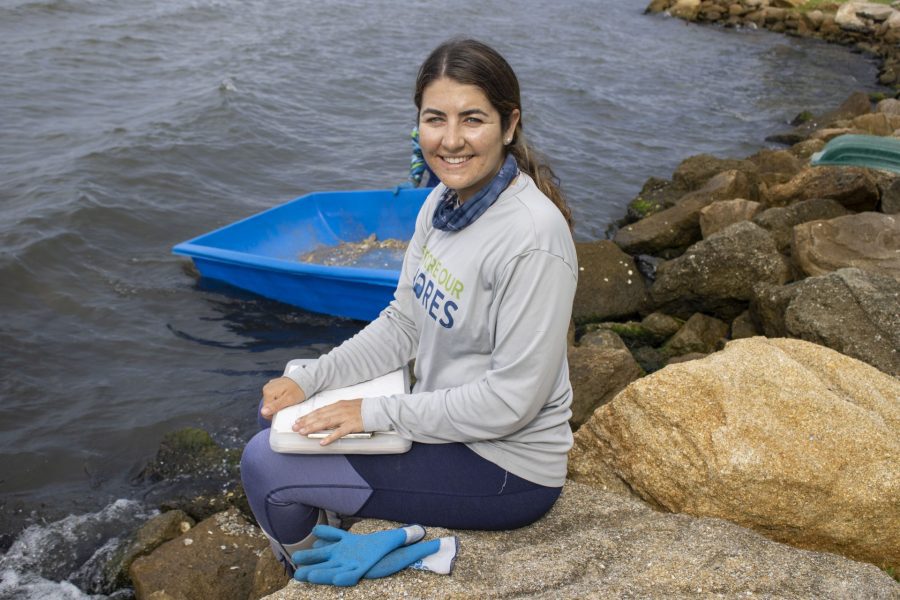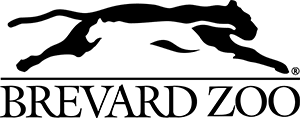

Meet Olivia Escandell, our Conservation Manager!
This International Day of Women and Girls in Science, we wanted to introduce you to a few of our Zoo team members and get their insights on their fields. There are so many ways for women and girls to use their science degrees to impact the people and animals around them!
Meet Olivia Escandell, the Conservation Manager of our Restore Our Shores program! To read more of our Women in Science stories, check out this link.
Position with Brevard Zoo: Conservation Manager, Restore Our Shores Program
Education: Bachelor of Arts in Marine Affairs, University of Miami Rosenstiel School for Marine and Atmospheric Science
How did you choose your field? Having grown up in Satellite Beach, I spent a lot of time exploring the coquina reef tide pools on the beach and seagrass meadows of the Indian River Lagoon. The marine environment fascinated me, and my favorite place was underwater! Even through my childhood, I saw unfortunate changes to the Indian River Lagoon that inspired me to pursue a career in environmental policy and conservation. I wanted to help protect our natural resources for future generations. I had planned to study marine and environmental policy and attend law school, but my path changed dramatically once I got a taste of working in the field!
Did or do you have any female mentors or role models in your field? If so, how did they shape your career journey? I had the pleasure of interning for Dr. Nikki Dix and Pam Marcum during college at the Guana Tolomato Matanzas National Estuarine Research Reserve in Ponte Vedra, FL. They taught me a lot about oyster populations and estuarine systems as we explored the reserve each day, as well as how important volunteer and community relationships are in conservation. With their guidance, I completed a research project on the impacts of harvesting to local oysters and I fell in love with collecting data in the field that could inform resource conservation. They even encouraged me to volunteer with oyster programs at the Brevard Zoo when I moved back to Brevard! I am forever grateful for their mentorship and I’m so lucky to get to work with them now as a peer. They’re friendly faces at regional restoration planning meetings and always happy to workshop monitoring method ideas when I need the help.
How would you describe your work? As Conservation Manager of the Brevard Zoo’s Restore Our Shores program, I oversee the Zoo’s community-based habitat restoration projects in the Indian River Lagoon. I spend a lot of my time planning when, where and how we will install restored oyster reef habitat and plant native hard clams, seagrass and mangroves. These projects require a lot of coordination between partners, including lagoon front property owners, funding agencies, permitting regulators, and of course our community volunteers! I also work to monitor our restoration projects to ensure they are meeting success targets that produce sustainable wildlife habitat and improve water quality.
What do you enjoy about your job? I love my amazing Conservation team and getting to work with the community to restore our lagoon. We work with volunteers from all walks of life who are so passionate about helping the lagoon. Also, I love that every day of my job is different: some days I am in the office working on logistics for upcoming projects while other days I’m swimming along the bottom of the lagoon monitoring seagrass or planting clams. Every day is an adventure!
What are some challenges about your work? Field plans never play out exactly like you think they will, so you often have to be flexible. Flexibility sounds easy, but never really is with so many moving parts: volunteers, permits, funding requirements, live animals! My job can also be difficult as we battle degraded water quality in the lagoon which can prevent our restoration projects from thriving. One large algae bloom could decimate an oyster reef or cause a seagrass bed to die back. This is why another part of my job is educating residents and advocating for infrastructure improvements that will reduce nutrient pollution in the lagoon. The small wins like seeing oyster recruitment or sea grass return to a new spot in the lagoon or inspiring a homeowner to kick fertilizer and plant natives make it all worth it.
What advice do you have for girls or women who want to work in your field? Don’t be afraid to volunteer and get your hands dirty! Field experience and a positive attitude will take you very far in this field. I struggled to find a paid position in my field when I moved back home to Brevard, but I knew I wanted to stay here and started volunteering as much as I could with local environmental organizations in my free time. I gained a lot of experience and met my future leaders that way! Once you make it into the field, don’t be discouraged if one of your restoration projects fails to succeed. Sometimes, you can learn more from your mistakes.
Brevard Zoo is an independent, not-for-profit organization that receives no recurring government funding for our operating costs. Your generous support enables us to continue to serve our community and continue our vital animal wellness, education and conservation programs.
